Immediate Effect Resignation Letter Template
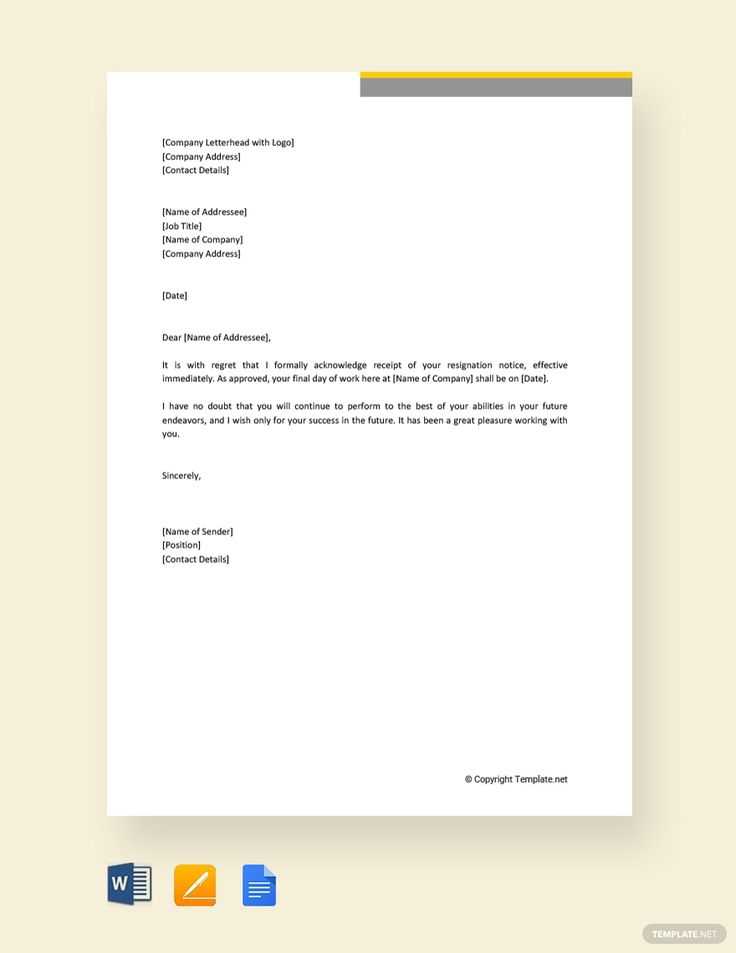
Sometimes life presents unforeseen circumstances that require you to leave your current job with little notice. In these situations, it is essential to communicate your decision in a clear and respectful way, ensuring both professionalism and understanding. Whether it’s due to personal reasons, health issues, or a new opportunity, leaving on good terms can still be achieved with the right approach.
When preparing to leave a position with minimal time, the key is to express your decision succinctly and professionally. A well-crafted message can help maintain a positive relationship with your employer, which might be beneficial for future reference. This guide will provide the necessary steps to resign in a manner that reflects your professionalism, even in an urgent situation.
Why You Might Need an Immediate Resignation
There are various reasons why someone may need to step away from their job without prior notice. Sometimes, urgent personal matters, health concerns, or sudden job offers create situations where leaving promptly becomes the only viable option. In these cases, it’s crucial to act quickly while ensuring that your departure remains as professional as possible.
Personal or Family Emergencies
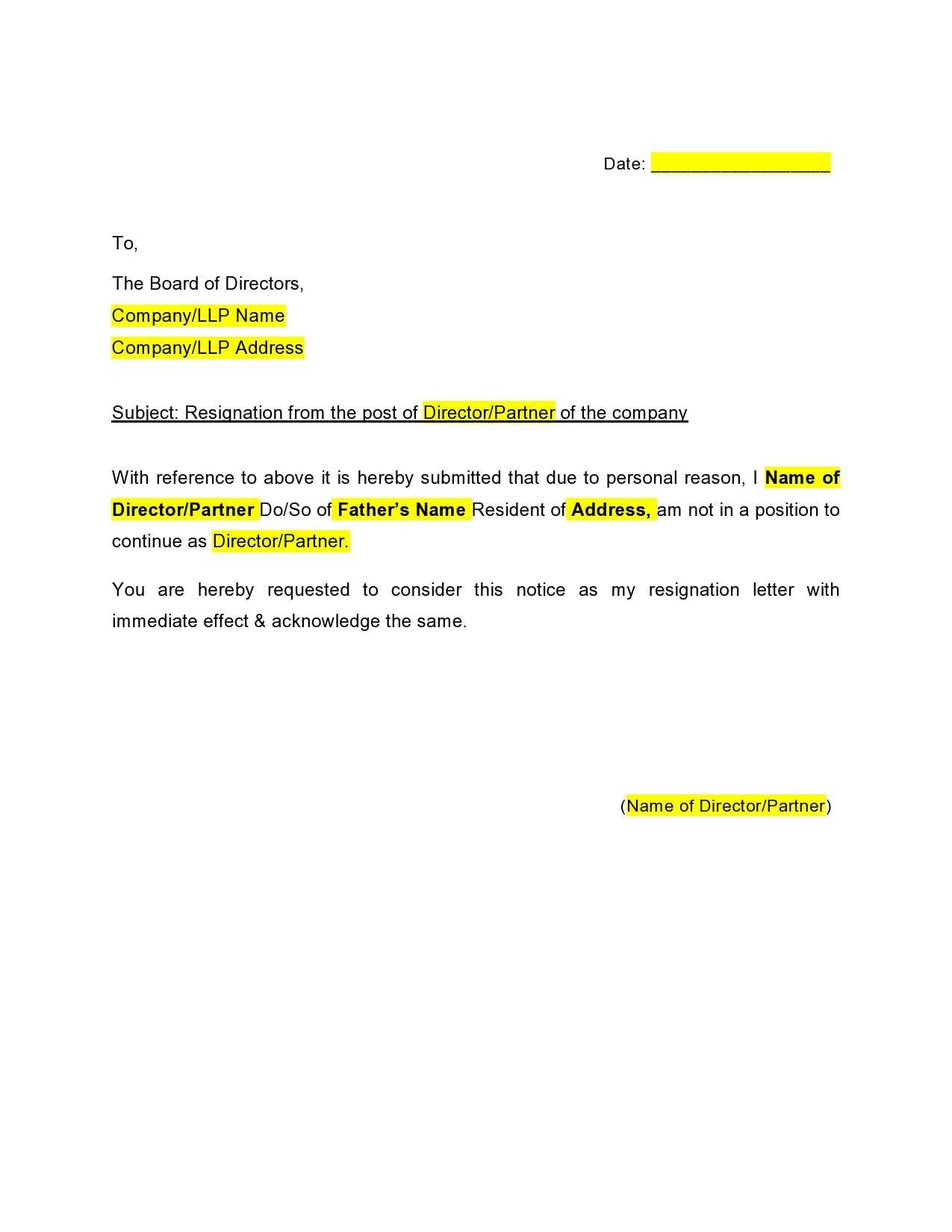
Unexpected events, such as serious health issues or family emergencies, often require immediate action. In these cases, your personal well-being or the well-being of a loved one must take priority. While leaving without advance notice may be necessary, a professional approach to communicating your departure can help preserve your reputation.
Unforeseen Professional Opportunities
Sometimes, a new career opportunity may present itself unexpectedly, and it could require you to leave your current position on short notice. Whether it’s a better offer or a chance to advance in your field, acting swiftly can be critical. While the timing may not be ideal for your current employer, clear communication is key to maintaining a positive professional image.
How to Write an Immediate Resignation Letter
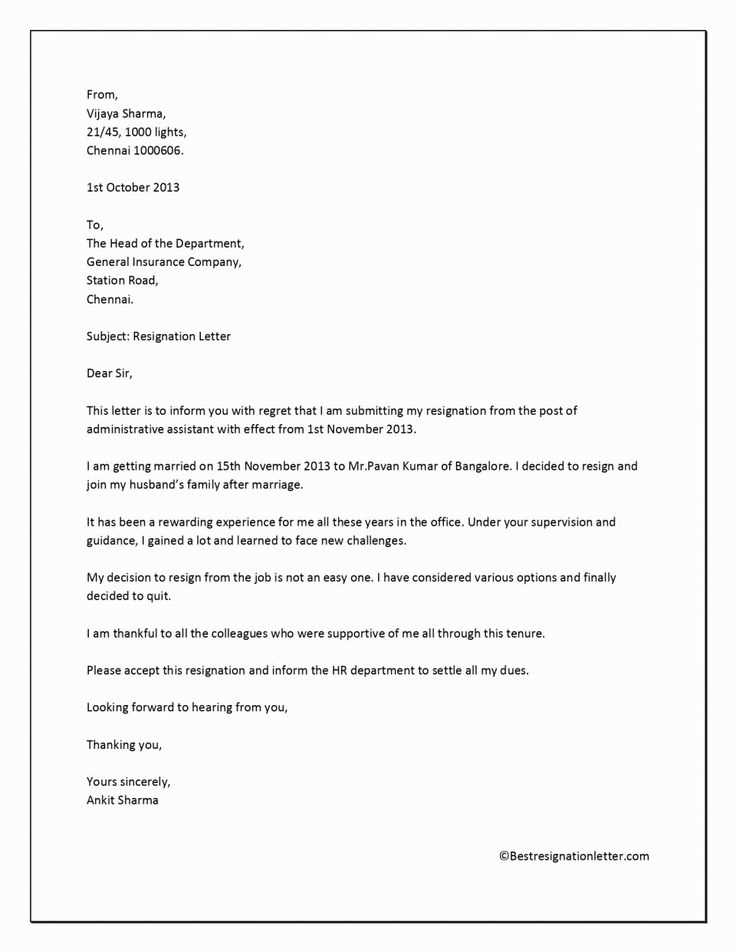
When you need to leave your job unexpectedly, crafting a professional message is essential. A well-written communication will help you convey your decision respectfully, even when time is limited. It’s important to include key details that explain your departure while maintaining a tone of professionalism and appreciation for the opportunity you’ve had with the company.
Keep it Concise and Clear
When writing your message, focus on being direct yet polite. Mention your reason for leaving without going into unnecessary detail, as brevity is crucial in these situations. Express gratitude for the time spent in the role, and if possible, offer to assist in a smooth transition, even if you are leaving abruptly.
Ensure Professionalism and Respect
Maintaining a professional tone is key when resigning quickly. Avoid emotional language or negativity, as you want to leave a positive impression. A simple yet formal tone that reflects your appreciation for the position will help preserve your reputation and may be beneficial for future opportunities.
Key Elements of a Resignation Letter
When preparing to step away from your current role, it’s important to structure your message clearly. Including the right information in your communication helps ensure professionalism and reduces any potential misunderstandings. Certain components are essential for conveying your decision effectively while maintaining a respectful tone.
Essential Information to Include
There are several key pieces of information that should be part of any formal notice. Each section plays a crucial role in providing clarity and professionalism. Below is a breakdown of these important elements:
| Component | Description |
|---|---|
| Reason for Leaving | While not always required, briefly stating why you’re leaving helps clarify your situation. |
| Gratitude | Expressing appreciation for the opportunity and experience can leave a positive impression. |
| Notice Period | If possible, indicate your willingness to assist with a transition during the remaining time. |
| Final Day | State the exact date of your departure to avoid any confusion. |
Maintain a Positive Tone
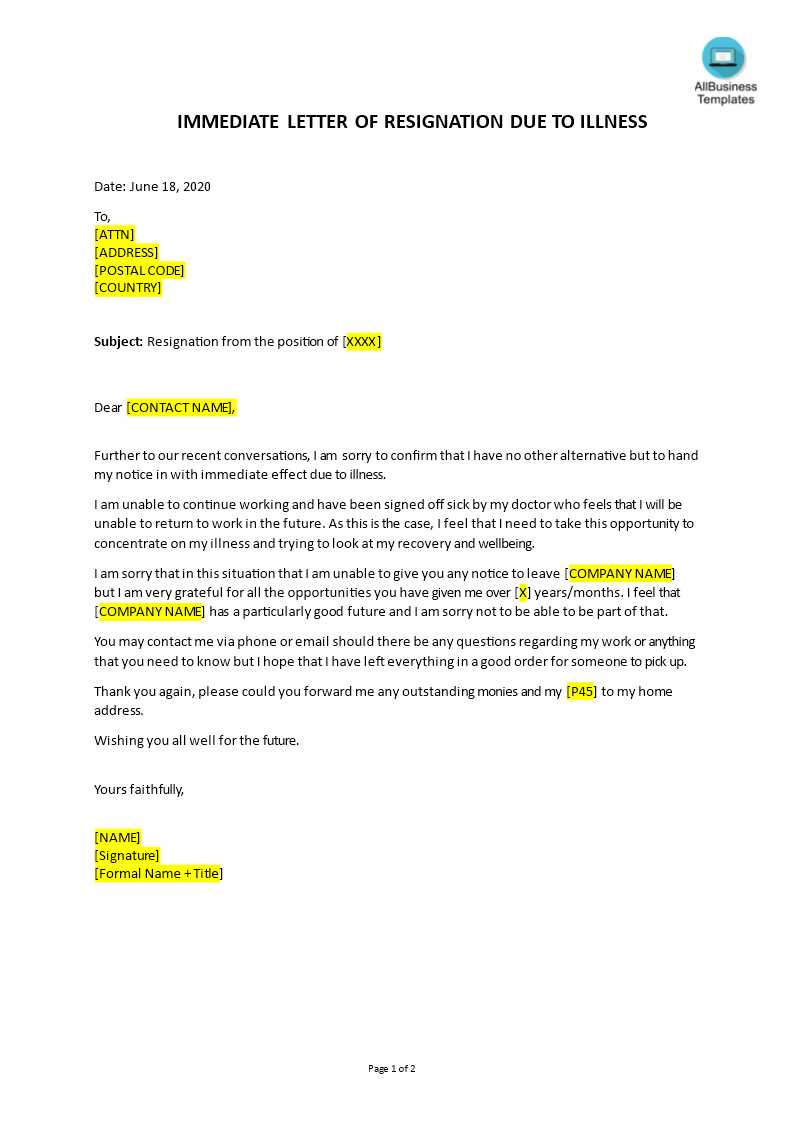
Even when resigning with little notice, it’s important to maintain a positive tone throughout your message. Avoid negative language, and focus on the good aspects of your time in the role. This approach helps preserve relationships and leaves a lasting impression of professionalism.
Best Practices for Resigning on Short Notice
When you find yourself in a situation where you must leave your job quickly, handling the process with professionalism is essential. While giving less notice than usual can be challenging, there are steps you can take to make your departure as smooth as possible for both you and your employer. Following best practices ensures that you leave on good terms and maintain your professional reputation.
- Be Transparent and Honest: Provide a brief and honest explanation for your decision to leave, whether it’s personal reasons or an unexpected opportunity.
- Express Gratitude: Always thank your employer for the opportunity and experience you’ve gained during your time with the company.
- Offer Assistance with the Transition: If possible, offer to help with a handover or training for the person taking over your duties.
- Follow Up with a Formal Written Notice: While you may have communicated verbally, it’s important to follow up with a formal written notice that confirms your decision and departure date.
- Stay Professional Until the End: Maintain a positive and professional attitude throughout your last days, and complete any remaining tasks to the best of your ability.
By following these practices, you can minimize any negative impact of leaving on short notice and ensure that your departure is handled as smoothly as possible.
Legal Considerations When Leaving Quickly
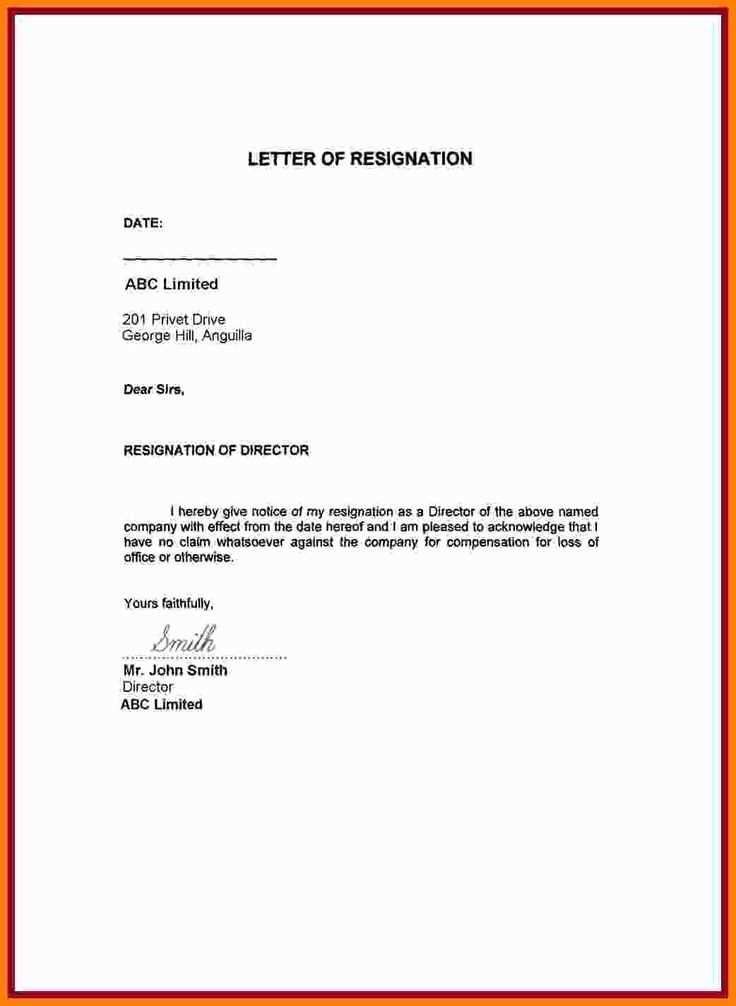
When you need to step away from your role abruptly, there are several legal factors to consider. Depending on your contract, the company policies, and local labor laws, leaving without providing the usual notice can have legal implications. Understanding these aspects beforehand can help you avoid complications and protect your rights during your departure.
Review Your Employment Contract
Before making any decisions, it’s important to carefully review your employment agreement. Some contracts may include clauses that specify the required notice period or outline penalties for leaving suddenly. Knowing these details can help you make a more informed decision about how to proceed.
Understand Local Labor Laws
Labor laws vary by location, and some regions have specific regulations regarding employee notice periods and termination. Ensure you are aware of your rights and obligations under local laws, as they can affect both your departure and any potential legal action from your employer.
Potential Consequences of Leaving Without Notice
In some cases, quitting without notice can lead to legal or financial consequences. For instance, your employer may withhold pay or bonuses, or you may be at risk of losing certain benefits. If you’re in a senior position or have access to confidential company information, there may also be non-compete or non-disclosure agreements to consider.
Consult Legal Advice If Needed
If you’re unsure about the legal implications of leaving quickly, it’s always wise to consult with an attorney. Legal counsel can help you navigate any issues and ensure your departure is handled appropriately within the boundaries of the law.
How to Handle Employer Reactions
When you announce your decision to leave the company unexpectedly, you may encounter a variety of responses from your employer. It’s important to be prepared for different reactions, whether positive, negative, or somewhere in between. Handling the situation with professionalism and grace can help maintain a good relationship and ensure your exit is as smooth as possible.
Stay Calm and Composed
Your employer may express frustration, disappointment, or surprise. Regardless of their reaction, it’s essential to stay calm and composed. Responding emotionally or defensively could escalate the situation. Instead, focus on listening to their concerns and calmly explaining your reasons for leaving.
Be Ready for Negotiation
Sometimes, employers may try to convince you to stay, especially if your role is critical. They may offer incentives or adjustments to your current role. If you are sure about your decision, politely but firmly reaffirm your position. Be prepared to explain your reasons without getting into unnecessary detail.
Respect Their Response
No matter how your employer reacts, it’s important to show respect. Even if they are unhappy, maintaining a professional attitude will help you leave on good terms. Acknowledge their feelings and express your gratitude for the opportunity to work with them, leaving the door open for future interactions.
Maintain Professionalism Throughout the Process
The key to handling your employer’s reaction is maintaining professionalism throughout your departure. This helps ensure that, even if the situation is challenging, you can part ways without damaging your professional reputation or relationships.